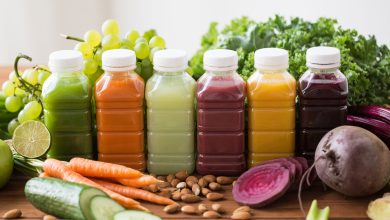Food and Drink
What Is Organic In Organic Halal Food?

What is Halal Food?
Halal is an Arabic word that means permissible. Halal food obtains from cow meat, chicken, sheep, goat, turkey, ducks, bison, etc. It also includes seafood like fish. Organic Halal Food does not contain any antibiotics, growth hormones, and other types of chemicals.
Organic Halal food is widely popular among the Muslim population. Moreover, all non-veg food falls under the umbrella of halal, except alcohol, gelatin-based products, lipase, enzyme, pig meat, Tallow, L-cysteine, etc.
Similarities and differences between Kosher and Halal
- Halal and Kosher food is often regarded as similar. However, they both have considerable differences. While Halal depicts permission, the Kosher depicts purity.
- Halal comes from Quran, the Muslim holy book, whereas Kosher comes from Torah, the Jewish holy book.
- Quran and Torah have set up some rules to validate the food as Halal and Kosher. Meanwhile, Kosher food does not include every food as Halal. For instance, Camel and Shellfish are allowed under the Halal regulations, but kosher rules forbid them.
- On the contrary, there are many similarities in the regulations of both the food. Kosher and Halal rules mandate a ritual slaughter by the spiritual person.
- The term organic halal comes from the organic certification. Organic certification guarantees consumers that the food and cosmetics are free from synthetic ingredients. In regards to animal products, the organic certification confirms the natural growth of animals. The certification signifies that the animal is not injected with antibiotics or hormones. Moreover, it confirms that the animal was partially/completely grass-fed.
Terms and conditions for Halal food
Muslim religious text has set up terms and conditions for the consumption of Halal food. In addition, the Australian Federation of Islamic Councils has also listed some rules to make the food permissible. These rules are:
- Adult Muslims can slaughter the animals.
- The slaughterer must recite the name of God before cutting the animal.
- The slaughtering procedure must be quick. The slaughterer must chop the throat of the animal in a single motion.
- The slaughterer must not chop the spinal cord of the animal.
- The slaughterers must feed animals before slaughtering.
- The slaughterer must not sharp the knife in the presence of an animal.
- The animal should be comfortable at the time of slaughter action.
Organic Halal Dishes
- Organic halal food offers several varieties, such as kebabs, curries, and other dishes. Moreover, several countries have created their signature recipes such as Haandi Curry, Chicken Boti Kebab, Mango Chicken Curry, Tandoori Chicken, Chicken Tikka Masala, Butter Chicken, etc.
- The demand for organic halal food is growing with time; according to the Astute Analytica report, the global organic halal food market is forecast to grow at a compound annual growth rate (CAGR) of 12.7% from 2022-2030.
- Along with positive market growth, the industry is witnessing a tornado of scams globally. A growing number of scam cases and chemical use has generated several concerns among consumers. As a result, Chinese authorities recently proposed the first CRISPR/Cas-based test to keep track of fraud.
- Moreover, health and religious concerns are increasing the demand for organic halal food. Various restaurants have started mentioning a small note to assure the authenticity of organic halal materials.
- Various product substitutes have replaced halal food with organic plant-based nutrition. For instance, JUST egg, based in the U.S., launched an egg supplement made from plant-based proteins.
Read about: The New Era of Snack Food






